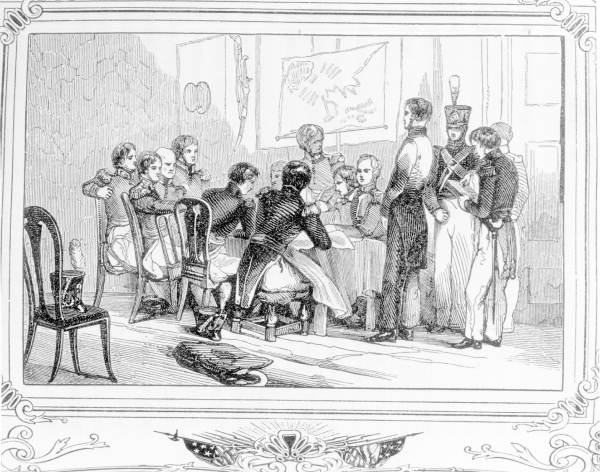<Back to Index>
- Incident Arbuthnot and Ambrister, 1818
- Governor of West Florida William King, 1700+
PAGE SPONSOR

The Arbuthnot and Ambrister incident occurred in 1818 during the First Seminole War when American General Andrew Jackson invaded Spanish Florida and captured and executed two British subjects charged with aiding Seminole and Creek Indians against the United States. Arbuthnot and Armbrister were tried and executed in St. Marks, FL. Jackson's actions triggered short lived protests from the British and Spanish governments and an investigation by the United States Congress. Congressional reports found fault with Jackson's handling of the trial and execution of Alexander George Arbuthnot and Robert C. Ambrister, but Congress chose not to censure the popular general.
It may be of general interest to students of the incident that the real name of "Robert C. Ambrister" was Robert Chrystie Armbrister (1797 – 1818). A British subject and a native of Nassau in the Bahamas, Armbrister was the youngest son of the South Carolina - born Loyalist, James Armbrister (1757 / 58 - 1833) who was then a Lieutenant Colonel in the colonial militia of the Bahamas. Young R.C. Armbrister had served in the British Royal Navy as a volunteer and as a Midshipman between 1809 and 1813, when he returned to the Bahamas. During 1814 - 1815 he served in the Spanish Floridas as an auxiliary 2ndLt of the battalion of the British Corps of Colonial Marines commanded by Brevet Major Edward Nicolls of the Royal Marines. Discharged from the military in Nassau in 1815, the former Marine Lieutenant returned to Spanish Florida in 1817 with his fellow former Marine, Captain George Woodbine, and the Scottish soldier of fortune, Gregor Macgregor.
Alexander (George) Arbuthnot (born in Montrose, Scotland, in 1748) was an older man, a Scottish merchant, translator, and diplomatic go-between, on occasion, who had been present in the Floridas since 1803. The executions of Arbuthnot, Armbrister, and at least two prominent Creek - Seminole leaders upon the demonstrated instructions of General Andrew Jackson, was perceived as an act of barbarity outside the existing conventions of warfare, both in Great Britain and elsewhere beyond the confines of the United States.
William King was an American army officer who was military Governor of West Florida from May 26, 1818 to February 4, 1819. He was appointed to the position by Andrew Jackson, who led the American occupation of Spanish West Florida during the First Seminole War.
William King was born in the United States between the late eighteenth century and early nineteenth century. He was of English descent. As a youth, he joined the United States Army.
King rose to the rank of Colonel, and led the Fourth Infantry under Andrew Jackson during the First Seminole War. He was with Jackson during his controversial 1818 invasion of the Spanish colony of West Florida and the occupation of Pensacola. Following Governor José Masot's surrender on May 23, Jackson appointed King military governor of West Florida on May 26. Jackson interpreted Masot's terms of surrender as giving the United States control over the entirety of West Florida.
As military governor, King was charged with upholding Spanish law in the colony, overseeing Spanish property, and caring for soldiers wounded in Jackson's campaign. After Jackson's departure from Florida on May 29, he also oversaw the dispersal of the Tennessee and Kentucky militia. However, Jackson's invasion of Florida threatened to derail the Adams – Onís Treaty, by which the United States hoped to acquire Spanish Florida, and the James Monroe administration wanted West Florida restored to Spanish control. King served in his post until he was relieved by Edmund P. Gaines on orders from U.S. Secretary of War John C. Calhoun. He was succeeded by José María Callava, West Florida's final Spanish governor.
Fort King, constructed in 1827, was named in honor of King.